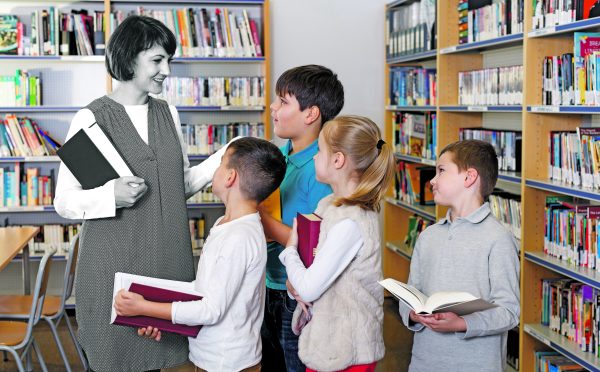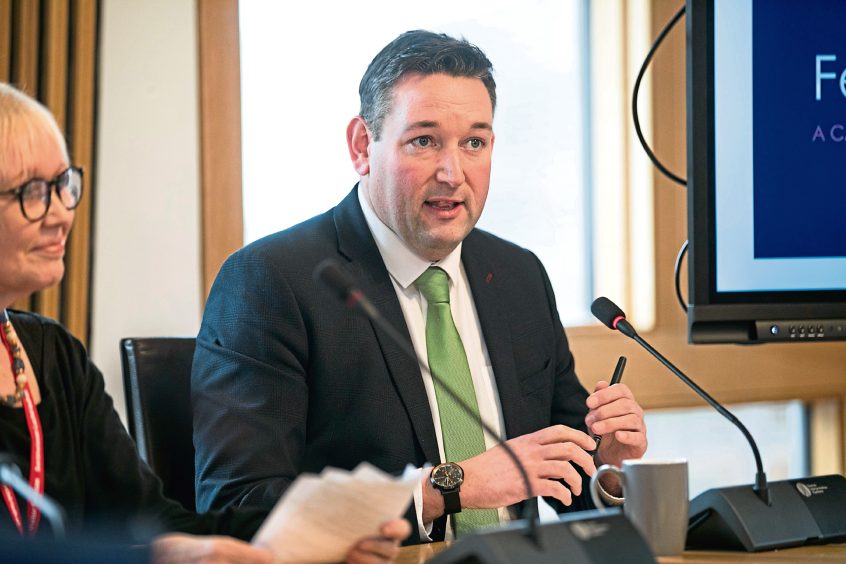
One in three school librarians has been axed since 2010, The Sunday Post can reveal, despite warnings over Scotland’s falling child literacy levels.
In 2010 there were 341 school librarians encouraging children to read. Our new figures reveal that number has plummeted to just 242 – a fall of almost one third.
With one in four adults now struggling to read, experts warn that cuts to services are having a long-term impact, trapping some people in a cycle of low-paid jobs throughout their working lives.
Local authorities are also proposing closing down public libraries, creating a crisis in communities where these services provide vital health and social benefits and help to reduce loneliness.
Campaigners warn that eroding library services is a false economy. They say libraries bring £6 in value to the economy for £1 of public money spent on them.
Scottish Conservative Miles Briggs said: “These very real cuts are having a major negative impact on young and old alike. Removing a vital service which changes lives is an unacceptable false economy.
“The Scottish Government must do much more to ensure our schools and public libraries are protected and nurtured or we will lose a resource which is so valuable, we simply cannot put a price on it.”
Library cuts
Some of the toughest reductions are being seen in schools, with massive cuts to staff librarians.
Shadow Education Minister Briggs said: “At a time when we are seeing more children than ever before struggling to read and write, it is simply shameful that school librarian numbers have plummeted to this degree.
“The Scottish Government are very quick to talk about Scotland being the best place for a child to grow up. But, unless we get reading and writing rates up, we will never close the attainment gap and ensure our children get the life chances they deserve.
“Unless much more is done to preserve and improve our libraries, we will be sentencing future generations to having to accept less well-paid jobs and fewer career chances.”
With a tenth of children not having access to a single book at home, the Edinburgh MSP is determined to see communities playing their role, calling for a roll out of book swap boxes to be positioned near schools.
The scheme, which has already been adopted in several cities such as Edinburgh, means children can access the boxes to swap books free of charge.
He said: “This is a great way of encouraging kids to get reading. Families are suffering with the cost-of-living crisis and books can be expensive. However, this would allow them to leave and swap books with no cost to them.
“One in 10 children aged 8-18 do not have access to a book at home. That is something we can change.”
The Great School Libraries report found a quarter of Scottish schools do not have library space, and two thirds have no library budget.
A quarter do not have a librarian, with many who do sharing staff between several schools.
Sean McNamara, who heads the Chartered Institute of Library and Information Professionals in Scotland, said: “School librarians play a highly active role in encouraging children to read.
“You only need to see the importance public schools place on their school librarians to understand just what a vital role they play.
“School librarians help increase exam scores. They improve attainment, literacy and encourage critical thinking.
“These things cannot be achieved if all you have is a room full of books.
“You need school librarians to encourage children to learn and get interested in books. But what we are seeing now is that they are among the first to go when local authorities are facing budget difficulties.”
Community impact
McNamara has also been lobbying local authorities to consider the huge community impact public libraries have, calling for them to undertake an Equalities Impact Assessment on any closure proposals to test the effect on the disabled, the elderly and those depending on the library for educational support.
In one recent letter to Aberdeenshire Council, he implored them to think again over proposals to close 13 public libraries, almost half the branches in rural areas.
He said: “This is what we are seeing, and it is disheartening. We need to get the message out there that libraries are a vital community link for everyone, from cradle to grave.
“Councils have a statutory responsibility to provide adequate public libraries, yet we have seen some of the most worrying proposed cuts in rural areas where they are heavily relied on by our most isolated and vulnerable members of society.
“Libraries need to be staffed by professionals who provide a wide range of invaluable services, and while we are entirely sympathetic with councils across the country who are facing huge financial challenges, we are urging councillors to think very carefully about protecting what we give to our communities.”
Public libraries are used by over a third of adults in Scotland every single week.
The digital training and support provided there is estimated to be worth around £6 billion to our economy.
They help uphold social justice for those with protected characteristics, reduce inequalities from socio-economic disadvantage, encourage educational attainment, protect the elderly and disabled, as well as providing a social hub vital for preventing loneliness and isolation.
An astonishing 95% of blind people use libraries to access specialist audio books or other technology.
Both Aberdeen and Dundee city council have had to revisit proposals to cut services because local campaigners took legal advice and challenged the lack of an equalities assessment by the local authorities.
McNamara said: “Our evidence shows libraries in Scotland are more popular than the cinema and football combined, having seen both usage and demand increase in the past decade for what is often the only remaining non-clinical, non-commercial space left where a community can come together to learn new skills and access vital resources.
“We must do everything we can to protect that.”

Enjoy the convenience of having The Sunday Post delivered as a digital ePaper straight to your smartphone, tablet or computer.
Subscribe for only £5.49 a month and enjoy all the benefits of the printed paper as a digital replica.
Subscribe © Andrew Cawley
© Andrew Cawley